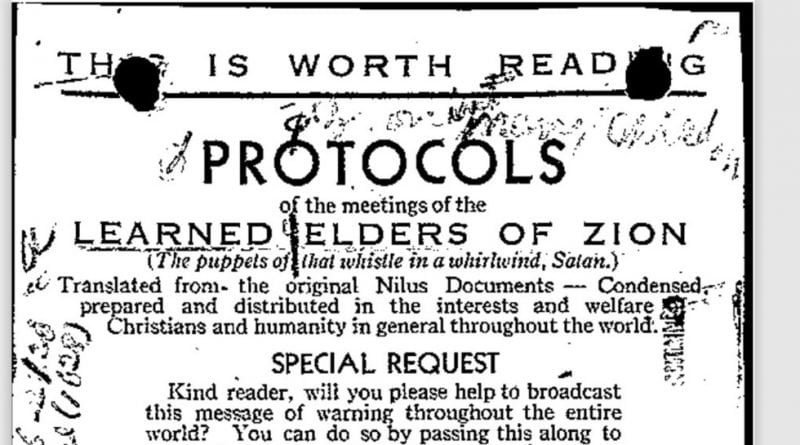
Many critics of jewish power do not actually believe that the Protocols are minutes from a meeting of jewish leaders, but something of an expose of their plans. Regardless of who wrote the document, almost everything that was written has come to pass, and the jewish conspiracy is undeniable. The jewish supremacists do not want “goyim” to read the Protocols because most people with any cognitive faculties would quickly realize that there is indeed a serious jewish problem that needs to be addressed, otherwise the rest of us will end up as their slaves in perpetuity.
The Times of Israel was quick to report on the FBI’s tweet:
The agency did not provide context for files from its archives on the anti-Semitic text, leading to accusations it could encourage bigotry against Jews
jewish organizations and individuals were also quick to condemn this blatant anti-semitism (and White nationalism)!
The @FBI is tweeting out the most famous, fabricated antisemitic text with absolutely zero context.
This is the same anti-Jewish lie that inspired Hitler and the Nazi regime.
Now it’s coming directly from a white nationalist administration.
WHAT. IS. THIS. https://t.co/JZTShmLTqY
— Bend the Arc: Jewish Action (@jewishaction) August 19, 2020
https://twitter.com/NoahHurowitz/status/1296155177943216130?ref_src=twsrc%5Etfw%7Ctwcamp%5Etweetembed%7Ctwterm%5E1296155177943216130%7Ctwgr%5E&ref_url=http%3A%2F%2Fwww.renegadetribune.com%2Ffbi-tweets-link-to-protocols-of-learned-elders-of-zion-and-jewish-outrage-ensues%2F
An agency of the United States federal government just posted a copy of one of the most infamous pieces of antisemitic literature of all time, responsible for the persecution and murder of thousands, even millions. On behalf of all Americsn Jews, what the fuck are you doing @FBI? https://t.co/o3cAfiPdyL
— Noah Arbit (@NoahArbit) August 19, 2020
Absolutely insane. FBI share the Protocols without any advisory. It looks like they are promoting it. Normally they get a few retweets. This has gone viral. Totally irresponsible. https://t.co/Da1HAXY2tk
— David Collier (@mishtal) August 19, 2020
The FBI often receives information from members of the public, which is captured in our permanent files and released under FOIA law. The FBI must process historical files that were collected in the past, some of which may be considered offensive
— FBI Records Vault (@FBIRecordsVault) August 19, 2020
Some people are wondering whether or not this release was really just the result of an automated process or if something else is at play here.
Just a few weeks ago the FBI released their files on famous revisionist Ernst Zundel.
Ernst Zundel: https://t.co/z2O9UAhr5E
— FBI Records Vault (@FBIRecordsVault) August 4, 2020
So what is actually going on. One jewish supremacist has a theory.
Did Q hack the @FBI Twitter account?
— David Rothschild (@DavMicRot) August 19, 2020
Of course Q did not hack the FBI Twitter account, but I would not be surprised if the FBI is part of the Q PsyOp. The release of the Protocols happened on the same day Trump essentially embraced the QAnon movement.
Trump is asked to shed light on his thoughts about about the lunatic QAnon conspiracy theory. Instead of denouncing it, he says, "I understand they like me very much, which I appreciate."
"I've heard these are people who love our country," he adds, coming close to an endorsement pic.twitter.com/gcvHvuqzIa
— Aaron Rupar (@atrupar) August 19, 2020
We are living in interesting times to say the least. I do not know what is going on behind the scenes and why the Protocols were tweeted out by the FBI, but hopefully this gets more people to read up on the jewish conspiracy to enslave the world.
By Kyle,
Disclaimer: We at Prepare for Change (PFC) bring you information that is not offered by the mainstream news, and therefore may seem controversial. The opinions, views, statements, and/or information we present are not necessarily promoted, endorsed, espoused, or agreed to by Prepare for Change, its leadership Council, members, those who work with PFC, or those who read its content. However, they are hopefully provocative. Please use discernment! Use logical thinking, your own intuition and your own connection with Source, Spirit and Natural Laws to help you determine what is true and what is not. By sharing information and seeding dialogue, it is our goal to raise consciousness and awareness of higher truths to free us from enslavement of the matrix in this material realm.
 EN
EN FR
FR


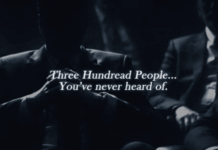
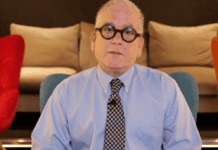
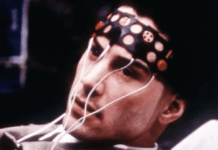

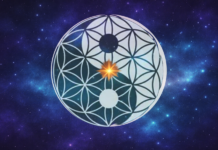

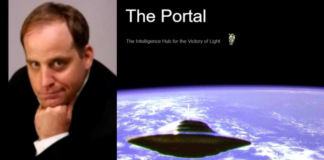


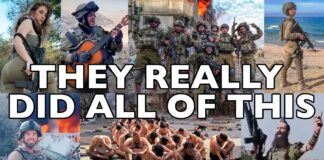
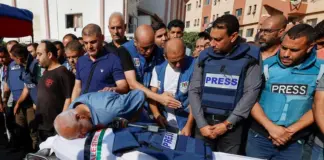













I’m presenting part of Carlos Castaneda’s book “A separate reality” the 2nd one in the series Teachings of Don Juan. Written in 1971. I’ve begun reading Chapter 9 today and it’s in sync with the topic of my day, at least, the comments I’ve left here below the article about the 87 politicians accused of paedophilia and other forms of sex-offence. As I perceive it, it’s in essence about the “hand-in-glove” condition of perpetrator and victim, with one in need of the other. I’ve got to be clear that this isn’t equal to condoning violence.
In this chapter, Carlos finds himself stuck in a conviction he once took upon himself, which prevents him from advancing further in his apprenticeship with Don Juan, who finds a way to trigger Carlos in remembering what it was when he was a child:
Page 96 of the PDF I’ve found as a free download:
“Your life is fairly tight,” he continued. “In fact, your life is tighter than Pablito’s or Nestor’s, Genaro’s apprentices, and yet they see and you don’t. Your life is tighter than Eligio’s and he’ll probably see before you do. This baffles me. Even Genaro cannot get over that. You’ve faithfully carried out everything I have told you to do.
Everything that my benefactor taught me, in the first stage of learning, I have passed on to you. The rule is right, the steps cannot be changed. You have done everything one has to do and yet you don’t see; but to those who see, like Genaro, you appear as though you see. I rely on that and I am fooled. You always turn around and behave like an idiot who doesn’t see, which of course is right for you.”
Don Juan’s words distressed me profoundly. I don’t know why but I was close to tears. I began to talk about my childhood and a wave of self-pity enveloped me. Don Juan stared at me for a brief moment and then moved his eyes away. It was a penetrating glance. I felt he had actually grabbed me with his eyes. I had the sensation of two fingers gently clasping me and I acknowledged a weird agitation, an itching, a pleasant despair in the area of my solar plexus. I became aware of my abdominal region. I sensed its heat. I could not speak coherently any more and I mumbled, then stopped talking altogether.
“Perhaps it’s the promise,” don Juan said after a long pause. “I beg your pardon?” “A promise you once made, long ago.” “What promise?” “Maybe you can tell me that. You do remember it, don’t you?” “I don’t.” “You promised something very important once. I thought that perhaps your promise was keeping you from seeing.” “I don’t know what you’re talking about.” “I’m talking about a promise you made! You must remember it.” “If you know what the promise was, why don’t you tell me, don Juan?” “No. It won’t do any good to tell you.” “Was it a promise I made to myself?”
For a moment I thought he might be referring to my resolution to quit the apprenticeship.
“No. This is something that took place a long time ago,” he said. I laughed because I was certain don Juan was playing some sort of game with me. I felt mischievous. I had a sensation of elation at the idea that I could fool don Juan, who, I was convinced, knew as little as I did about the alleged promise. I was sure he was fishing in the dark and trying to improvise. The idea of humouring him delighted me.
“Was it something I promised to my grandpa?” “No,” he said, and his eyes glittered. “Neither was it something you promised to your little grandma.” The ludicrous intonation he gave to the word “grandma” made me laugh. I thought don Juan was setting some sort of trap for me, but I was willing to play the game to the end. I began enumerating all the possible individuals to whom I could have promised something of great importance.
He said no to each. Then he steered the conversation to my childhood. “Why was your childhood sad?” he asked with a serious expression. I told him that my childhood had not really been sad, but perhaps a bit difficult. “Everybody feels that way,” he said, looking at me again. “I too was very unhappy and afraid when I was a child. To be an Indian is hard, very hard. But the memory of that time no longer has meaning for me, beyond that it was hard. I had ceased to think about the hardship of my life even before I had learned to see.”
“I don’t think about my childhood either,” I said. “Why does it make you sad, then? Why do you want to weep?” “I don’t know. Perhaps when I think of myself as a child I feel sorry for myself and for all my fellow men. I feel helpless and sad.” He looked at me fixedly and again my abdominal region registered the weird sensation of two gentle fingers clasping it. I moved my eyes away and then glanced back at him. He was looking into the distance, past me; his eyes were foggy, out of focus.
“It was a promise of your childhood,” he said after a moment’s silence. “What did I promise?” He did not answer. His eyes were closed. I smiled involuntarily; I knew he was feeling his way in the dark; however, I had lost some of my original impetus to humour him. “I was a skinny child,” he went on, “and I was always afraid.”
“So was I,” I said. “What I remember the most is the terror and sadness that fell upon me when the Mexican soldiers killed my mother,” he said softly, as if the memory was still painful. “She was a poor and humble Indian. Perhaps it was better that her life was over then. I wanted to be killed with her, because I was a child. But the soldiers picked me up and beat me. When I grabbed onto my mother’s body they hit my fingers with a horsewhip and broke them. I didn’t feel any pain, but I couldn’t grasp any more, and then they dragged me away.”
He stopped talking. His eyes were still closed and I could detect a very slight tremor in his lips. A profound sadness began to overtake me. Images of my own childhood started to flood my mind. “How old were you, don Juan?” I asked, just to offset the sadness in me. “Maybe seven. That was the time of the great Yaqui wars. The Mexican soldiers came upon us unexpectedly while my mother was cooking some food. She was a helpless woman. They killed her for no reason at all. It doesn’t make any difference that she died that way, not really, and yet for me it does.
I cannot tell myself why, though; it just does. I thought they had killed my father too, but they hadn’t. He was wounded. Later on they put us in a tram like cattle and closed the door. For days they kept us there in the dark, like animals. They kept us alive with bits of food they threw into the wagon from time to time.
“My father died of his wounds in that wagon. He became delirious with pain and fever and went on telling me that I had to survive. He kept on telling me that until the very last moment of his life. “The people took care of me; they gave me food; an old woman curer fixed the broken bones of my hand. And as you can see, I lived. Life has been neither good nor bad to me; life has been hard. Life is hard and for a child it is sometimes horror itself.”
We did not speak for a very long time. Perhaps an hour went by in complete silence. I had very confusing feelings. I was somewhat dejected and yet I could not tell why. I experienced a sense of remorse. A while before I had been willing to humour don Juan, but he had suddenly turned the tables with his direct account. It had been simple and concise and had produced a strange feeling in me. The idea of a child undergoing pain had always been a touchy subject for me.
In an instant my feelings of empathy for don Juan gave way to a sensation of disgust with myself. I had actually taken notes, as if don Juan’s life were merely a clinical case. I was on the verge of ripping up my notes when don Juan poked my calf with his toe to attract my attention. He said he was “seeing” a light of violence around me and wondered whether I was going to start beating him. His laughter was a delightful break.
He said that I was given to outbursts of violent behaviour but that I was not really mean and that most of the time the violence was against myself. “You’re right, don Juan,” I said. “Of course,” he said, laughing. He urged me to talk about my childhood. I began to tell him about my years of fear and loneliness and got involved in describing to him what I thought to be my overwhelming struggle to survive and maintain my spirit.
He laughed at the metaphor of “maintaining my spirit.” I talked for a long time. He listened with a serious expression. Then, at a given moment his eyes “clasped” me again and I stopped talking. After a moment’s pause he said that nobody had ever humiliated me and that was the reason I was not really mean. “You haven’t been defeated yet,” he said. He repeated the statement four or five times so I felt obliged to ask him what he meant by that.
He explained that to be defeated was a condition of life which was unavoidable. Men were either victorious or defeated and, depending on that, they became persecutors or victims. These two conditions were prevalent as long as one did not “see”; “seeing” dispelled the illusion of victory, or defeat, or suffering. He added that I should learn to “see” while I was victorious to avoid ever having the memory of being humiliated. I protested that I was not and had never been victorious at anything; and that my life was, if anything, a defeat.
He laughed and threw his hat on the floor. “If your life is such a defeat, step on my hat,” he dared me in jest. I sincerely argued my point. Don Juan became serious. His eyes squinted to a fine slit. He said that I thought my life was a defeat for reasons other than defeat itself.
Then in a very quick and thoroughly unexpected manner he took my head in his hands by placing his palms against my temples. His eyes became fierce as he looked into mine. Out of fright I took an involuntary deep breath through my mouth. He let my head go and reclined against the wall, still gazing at me. He had performed his movements with such a speed that by the time he had relaxed and reclined comfortably against the wall, I was still in the middle of my deep breath.
I felt dizzy, ill at ease. “I see a little boy crying,” don Juan said after a pause. He repeated it various times as if I did not understand. I had the feeling he was talking about me as a little boy crying, so I did not really pay attention to it. “Hey!” he said, demanding my full concentration. “I see a little boy crying.” I asked him if that boy was me. He said no.
Then I asked him if it was a vision of my life or just a memory of his own life. He did not answer. “I see a little boy,” he continued saying. “And he is crying and crying.” “Is he a boy I know?” I asked. “Yes.” “Is he my little boy?” “No.” “Is he crying now?” “He’s crying now,” he said with conviction.
I thought don Juan was having a vision of someone I knew who was a little boy and who was at that very moment crying. I voiced the names of all the children I knew, but he said those children were irrelevant to my promise and the child who was crying was very important to it. Don Juan’s statements seemed to be incongruous. He had said that I had promised something to someone during my childhood, and that the child who was crying at that very moment was important to my promise.
I told him he was not making sense. He calmly repeated that he “saw” a little boy crying at that moment, and that the little boy was hurt. I seriously struggled to fit his statements into some sort of orderly pattern, but I could not relate them to anything I was aware of. “I give up,” I said, “because I can’t remember making an important promise to anybody, least of all to a child.”
He squinted his eyes again and said that this particular child who was crying at that precise moment was a child of my childhood. “He was a child during my childhood and is still crying now?” I asked. “He is a child crying now,” he insisted. “Do you realise what you’re saying, don Juan?” “I do.” “It doesn’t make sense. How can he be a child now if he was one when I was a child myself?” “He’s a child and he’s crying now,” he said stubbornly.
“Explain it to me, don Juan.” “No. You must explain it to me.” For the life of me I could not fathom what he was referring to. “He’s crying! He’s crying!” don Juan kept on saying in a mesmerising tone. “And he’s hugging you now. He’s hurt! He’s hurt! And he’s looking at you. Do you feel his eyes? He’s kneeling and hugging you. He’s younger than you. He has come running to you. But his arm is broken. Do you feel his arm? That little boy has a nose that looks like a button. Yes! That’s a button nose.”
My ears began to buzz and I lost the sensation of being at don Juan’s house. The words “button nose” plunged me at once into a scene out of my childhood. I knew a button-nose boy! Don Juan had edged his way into one of the most recondite places of my life.
I knew then the promise he was talking about. I had a sensation of elation, of despair, of awe for don Juan and his splendid maneuvre.
How in the devil did he know about the button-nose boy of my childhood? I became so agitated by the memory don Juan had evoked in me that my power to remember took me back to a time when I was eight years old. My mother had left two years before and I had spent the most hellish years of my life circulating among my mother’s sisters, who served as dutiful mother surrogates and took care of me a couple of months at a time.
Each of my aunts had a large family, and no matter how careful and protective the aunts were toward me, I had twenty-two cousins to contend with. Their cruelty was sometimes truly bizarre. I felt then that I was surrounded by enemies, and in the excruciating years that followed I waged a desperate and sordid war. Finally, through means I still do not know to this day, I succeeded in subduing all my cousins. I was indeed victorious. I had no more competitors who counted. However, I did not know that, nor did I know how to stop my war, which logically was extended to the school grounds.
The classrooms of the rural school where I went were mixed and the first and third grades were separated only by a space between the desks. It was there that I met a little boy with a flat nose, who was teased with the nickname “Button-nose.” He was a first-grader.
I used to pick on him haphazardly, not really intending to. But he seemed to like me in spite of everything I did to him. He used to follow me around and even kept the secret that I was responsible for some of the pranks that baffled the principal. And yet I still teased him. One day I deliberately toppled over a heavy standing blackboard; it fell on him; the desk in which he was sitting absorbed some of the impact, but still the blow broke his collarbone. He fell down.
I helped him up and saw the pain and fright in his eyes as he looked at me and held onto me. The shock of seeing him in pain, with a mangled arm, was more than I could bear. For years I had viciously battled against my cousins and I had won; I had vanquished my foes; I had felt good and powerful up to the moment when the sight of the button-nose little boy crying demolished my victories.
Right there I quit the battle. In whatever way I was capable of, I made a resolution not to win ever again. I thought his arm would have to be cut off, and I promised that if the little boy was cured I would never again be victorious. I gave up my victories for him. That was the way I understood it then. Don Juan had opened a festered sore in my life.
I felt dizzy, overwhelmed. A well of unmitigated sadness beckoned me and I succumbed to it. I felt the weight of my acts on me. The memory of that little button-nose boy, whose name was Joaquin, produced in me such a vivid anguish that I wept. I told don Juan of my sadness for that boy who never had anything, that little Joaquin who did not have money to go to a doctor and whose arm never set properly. And all I had to give him were my childish victories. I felt so ashamed.
“Be in peace, you funny bird,” don Juan said imperatively. “You gave enough. Your victories were strong and they were yours. You gave enough. Now you must change your promise.”
“How do I change it? Do I just say so?” “A promise like that cannot be changed by just saying so. Perhaps very soon you’ll be able to know what to do about changing it. Then perhaps you’ll even get to see.” “Can you give me any suggestions, don Juan?” “You must wait patiently, knowing that you’re waiting, and knowing what you’re waiting for.
That is the warrior’s way. And if it is a matter of fulfilling your promise then you must be aware that you are fulfilling it. Then a time will come when your waiting will be over and you will no longer have to honour your promise. There is nothing you can do for that little boy’s life. Only he could cancel that act.”
“But how can he?” “By learning to reduce his wants to nothing. As long as he thinks that he was a victim, his life will be hell. And as long as you think the same your promise will be valid. What makes us unhappy is to want. Yet if we would learn to cut our wants to nothing, the smallest thing we’d get would be a true gift. Be in peace, you made a good gift to Joaquin.
To be poor or wanting is only a thought; and so is to hate, or to be hungry, or to be in pain.” “I cannot truly believe that, don Juan. How could hunger and pain be only thoughts?” “They are only thoughts for me now. That’s all I know. I have accomplished that feat. The power to do that is all we have, mind you, to oppose the forces of our lives; without that power we are dregs, dust in the wind.”
“I have no doubt that you have done it, don Juan, but how can a simple man like myself or little Joaquin accomplish that?” “It is up to us as single individuals to oppose the forces of our lives. I have said this to you countless times: Only a warrior can survive. A warrior knows that he is waiting and what he is waiting for; and while he waits he wants nothing and thus whatever little thing he gets is more than he can take.
If he needs to eat he finds a way, because he is not hungry; if something hurts his body he finds a way to stop it, because he is not in pain. To be hungry or to be in pain means that the man has abandoned himself and is no longer a warrior; and the forces of his hunger and pain will destroy him.”
I wanted to go on arguing my point, but I stopped because I realised that by arguing I was making a barrier to protect myself from the devastating force of don Juan’s superb feat which had touched me so deeply and with such a power. How did he know? I thought that perhaps I had told him the story of the button-nose boy during one of my deep states of non-ordinary reality.
I did not recollect telling him, but my not remembering under such conditions was understandable. “How did you know about my promise, don Juan?” “I saw it.” “Did you see it when I had taken Mescalito, or when I had smoked your mixture?” “I saw it now. Today.” “Did you see the whole thing?”
“There you go again. I’ve told you, there’s no point in talking about what seeing is like. It is nothing.” I did not pursue the point any longer. Emotionally I was convinced. “I also made a vow once,” don Juan said suddenly. The sound of his voice made me jump. “I promised my father that I would live to destroy his assassins. I carried that promise with me for years.
Now the promise is changed. I’m no longer interested in destroying anybody. I don’t hate the Mexicans. I don’t hate anyone. I have learned that the countless paths one traverses in one’s life are all equal. Oppressors and oppressed meet at the end, and the only thing that prevails is that life was altogether too short for both. Today I feel sad not because my mother and father died the way they did; I feel sad because they were Indians.
They lived like Indians and died like Indians and never knew that they were, before anything else, men.”
For those of you wishing to read the book, here’s the link from which I copied this part of Chapter 9:
https://www.semanticscholar.org/paper/A-SEPARATE-REALITY%3A-Further-Conversations-with-Don-Casta%C3%B1eda/6e783906baf15d637f9bebd32300d1f5bd5255a8
‘Auschwitz: The Underground Tour’ Author: Carolyn Yeager, can view on her site. (what the tour guides don’t tell you about Auschwitz-Birkenau) Can purchase at ‘The Barnes Review’ Book & Publishing Company.
“The Protocols of the Elders of Zion” I read around 10 years ago and discover that it is the perfect manual to use if you will be on another planet and want to enslaved his inhabitants. Of course the parasite elite globalist use it every century again and again to keep the sheep a slave at their service, giving them the feeling to be free by hard working. Time of this game is over, people are waking up, and never forget we are 99% against 1% Zionist parasites.
Read it and see if our lives have been unfolding as outlined in those protocols. I’ve read it many times and more than once I’ve been told it is a fraudulent document. Judge for yourself. We’ve been so trained to react only a certain acceptable way by the ADL who wants to control the narrative at all times. While you are at it, read this too and learn more truths http://www.stopthecrime.net/docs/THE-GREAT-AMERICAN-ADVENTURE.pdf
“The Protocols of the Elders of Zion” arrived as a free download PDF in my documents since it was recommended by Ronald Bernard of the Bank of Joy in The Netherlands.
It’s published on YouTube, as a reading, for some time now, I believe. As it happens often, those Elders of Zion are perceived, by those who are quick to judge, or deep in the groove of victimhood, as if they represent the entire Jewish population on planet Earth right now. Here’s an informative site about it: https://www.biblebelievers.org.au/przion1.htm
If this FBI tweet is for the benefit of disclosure of truth or a nudge to start pushing as many skeletons back in the wardrobe as possible, probably we’ll keep seeing a playing field divided in two or four.
The dark humour in our present time, in this battle for planet Earth, on a personal and collective level, is the mainstream media-team’s tendency to try to play the ball in such a way that the opponent has the hardest job dealing with it. That’s what “winning” means, nowadays. The selfie-culture, with “me, myself and I in the picture”, simply deleting any person or form of opinion that’s not fitting in my selfie-made puzzle.
Since fake news and lies plus manipulation of facts is expected (=imagined) to be present in all corners of the playing field. all rules have flown out of the window and the playing field is changing into a pinball machine. Arbiters? We all pretend to know the rules, ha!
Triggers seem to be the tools to keep us on our feet inwardly, most of all. In lock down, and social distancing, with face masks(?) It’s time we obtain the jester’s role, exposing the scheming and treason, concocted in the devil’s court. Like Saruman, the mediator between Sauron and Gandalf. The grey and the white, measuring each other’s power and magic tricks. As I perceive it, Tolkien’s master piece “The Lord of the Rings” is highly prophetic.
The Encyclopedia Judaica calls ‘The Transfer Agreement’ ‘Haavara’ where German Jews Voluntarily went to Palestine with their assets. It was negotiated by Eliezer Hoofein, director of Anglo-Palestine Bank & was agreed upon by The Reich Economics Ministry in 1933. Migration continued through 1939. Their was also a more recent auction of gold coins from that time period that shows the cooperation of the transfer. These artifacts have a Swastika on one side & Star of David on the other.
June 15, 1939 A new Reichsbank Law went into effect which made the bank unconditionally subordinated to the Sovereignty of Germany. Hitler was now his own banker, Departing from the fold of International Swindlers. It would be “That Event” that Triggered WW2.
Devon, also I’m responding to your Misinformation regarding “those Trains full of jews being transferred in the Winter of 1944. In Fact The United States had already entered German Territory by then & those were German Soldiers that Surrendered being transferred to ‘Eisenhower Deaths Camps,’ Where the United States viciously allowed 1.5 – 2 million German Soldiers Die of Starvation in the Sun in their own Waste.
These people are alarmists. The FBI Twitter acct is a constant stream of once classified but now unclassified documents. The FBI did not write it nor are they responsible for editing, cancelling or otherwise. How the public, those who have never heard of such, reacts to it would/will be interesting. Guess it’s time.